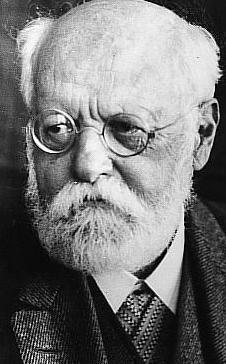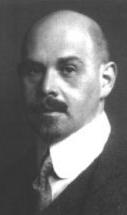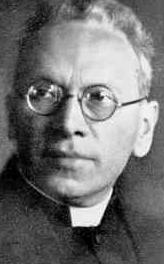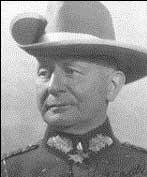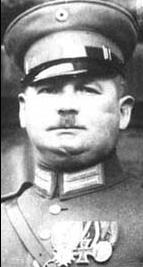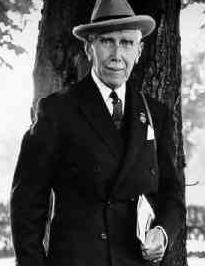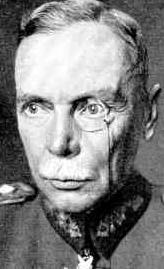German parties
From Kaiserreich
MaskedPickle (Talk | contribs) (→Deutsche Zentrumspartei) |
MaskedPickle (Talk | contribs) |
||
| Line 6: | Line 6: | ||
==Sozialdemokratische Partei Deutschlands== | ==Sozialdemokratische Partei Deutschlands== | ||
| - | |||
| - | |||
[[Image:Kautsky.jpg|thumb|100px|Karl Kautsky]] | [[Image:Kautsky.jpg|thumb|100px|Karl Kautsky]] | ||
| + | |||
| + | Created on May, 23 1863, the '''SPD''' ''(Social Democratic Party of Germany'') is the oldest party in Germany and among the most powerful leftist parties in non-syndicalist Europe. First countered by the social welfare reforms of Bismarck, the socialists, divided between pro-Revolution and democrats, increased his influence within the Reichstag, becoming the strongest party in 1912, on the eve of the [[Weltkrieg]]. This one totally divided the German socialists, divided between rallying the fight for the fatherland or betraying the Kaiserreich which was crushing the Bolchevik brothers in Russia and isolating the Syndicalist fellows in France. With the death of Friedrich Ebert in 1925, the true social-democrats lose control within the SPD, which was himself losing the vote of the lower classes, too happy of the successes of the Mitteleuropean system or voting for the national-populists. Under the leadership of Karl Kautsky, the SPD is trying a new marxist approach, in order to stay as a strong interest group, while the Spartakusbund is favorable to a French-like organisation able to rally all the German workers, and other ones wanting a renewal of the Bolchevik experience in the country who saw the birth of Karl Marx. | ||
The SPD voters are mostly among the lower classes and the industrial areas, but some analysts are finding more and more voters in Elsass-Lothringen, as the proximity with Commune of France is creating a mix between French nationalism and marxist ideals. | The SPD voters are mostly among the lower classes and the industrial areas, but some analysts are finding more and more voters in Elsass-Lothringen, as the proximity with Commune of France is creating a mix between French nationalism and marxist ideals. | ||
| Line 15: | Line 15: | ||
'''Main members:''' | '''Main members:''' | ||
| - | ''' | + | '''Chairman:''' '''''Karl Kautsky''''', editor of the fourth volume of Karl Marx's Das Kapital, leading promulgator of marxism since Engels's death. Born on October, 16 1854 |
'''Representative at the Reichstag''': '''''Arthur Crispien''''', born on November, 4 1875 | '''Representative at the Reichstag''': '''''Arthur Crispien''''', born on November, 4 1875 | ||
| Line 28: | Line 28: | ||
==Fortschrittliche Volkspartei== | ==Fortschrittliche Volkspartei== | ||
| - | |||
| - | |||
[[Image:Rathenau.jpg|thumb|100px|Walther von Rathenau]] | [[Image:Rathenau.jpg|thumb|100px|Walther von Rathenau]] | ||
| + | |||
| + | Created on March, 6 1910, the '''FVP''' ''(Progressive People's Party)'' claims liberal democracy as it existed in Western Europe before the Weltkrieg, criticizing the authoritarian rule of the Prussian Junkers and advocating for more freedom and true democracy, without any revolution, opposing the ruling wing of the SPD. Unfortuntely, his soft program deceives most of the democrat intellectuals, mostly republicans, and many of the German citizens, too happy with a dictatorial regime who brings them prosperity and welfare. Thus, the Progressists stays as an anecdotical party in Germany. | ||
'''Main members:''' | '''Main members:''' | ||
| - | ''' | + | '''Chairman:''' '''''Walther von Rathenau''''', wealthy industrialist of Jewish ancestry, ennobled by the Kaiser for his part in the German saving of Austro-Hungarian industry in the late 20's. Born on September 29, 1867. |
'''Representative at the Reichstag:''' '''''Wilhelm Külz''''', born on February 18, 1875. | '''Representative at the Reichstag:''' '''''Wilhelm Külz''''', born on February 18, 1875. | ||
| Line 42: | Line 42: | ||
==Deutsche Zentrumspartei== | ==Deutsche Zentrumspartei== | ||
| + | |||
| + | [[Image:Kaas.jpg|thumb|100px|Ludwig Kaas]] | ||
Created on December, 13 1870, the '''Zentrum''' ''(German Centre Party)'' represents the interests of the German Catholics (still influent in Southern Germany) and is sometimes described as the classical opposition between militarist Prussia and rural Bavaria, the true protectors of traditionalism or Vatican agents, depending on the one who is describing it. Claiming to have been martyred by Berlin during the Kulturkampf, the Catholics are rather suspicious towards the decisions of the Prussian protestant ministers, even if they are conservatives as them. With the effective control of the Church on Northern Italy, many paranoid politicians are fearing an alliance between the rulers of Rome and an extremist Zentrum, especially if a German-speaking pope like Innitzer is elected; other ones are fearing the Zentrum as a potential ally for Austrian interests within their German big brother. | Created on December, 13 1870, the '''Zentrum''' ''(German Centre Party)'' represents the interests of the German Catholics (still influent in Southern Germany) and is sometimes described as the classical opposition between militarist Prussia and rural Bavaria, the true protectors of traditionalism or Vatican agents, depending on the one who is describing it. Claiming to have been martyred by Berlin during the Kulturkampf, the Catholics are rather suspicious towards the decisions of the Prussian protestant ministers, even if they are conservatives as them. With the effective control of the Church on Northern Italy, many paranoid politicians are fearing an alliance between the rulers of Rome and an extremist Zentrum, especially if a German-speaking pope like Innitzer is elected; other ones are fearing the Zentrum as a potential ally for Austrian interests within their German big brother. | ||
The Centrist vote is almost inexistant in Eastern and Northern Germany, while it's clearly dominant in Rhineland and Bavaria. | The Centrist vote is almost inexistant in Eastern and Northern Germany, while it's clearly dominant in Rhineland and Bavaria. | ||
| - | |||
| - | |||
'''Main members:''' | '''Main members:''' | ||
Revision as of 17:29, 5 October 2007
(WORK IN PROGRESS)
Germany is a federal semi-constitutional monarchy ruled by the German Kaiser (who is also King of Prussia). Although Germany has many political parties, the state policies are rather authoritarian. The Constitution of the Second German Reich has stood in place for 60 years. The Chancellor and Government are appointed by the Kaiser, but legislation needs to be approved by the Reichstag, a chamber elected proportionally by universal male suffrage, and the Bundesrat, consisting of representatives from each of the states. While the Reichstag is far from a rubber-stamp institution, and has become increasingly vocal and assertive over the past thirty years, it is not yet strong enough that it can actually bring down a Government. The relative weakness of the Reichstag has meant that a wide range of voluntarist pressure groups have sprung up, attempting to push forward a range of economic, political and sectional causes. In addition, the various states of the Reich have considerable autonomy and influence over local matters, including education, law enforcement and arts patronage. While many of the smaller states have extremely liberal constitutions, the unequal Estate-based electoral system for the Prussian Landtag remains a bone of contention.
Despite his authoritarian nature, the German political system is favourable to be multiparty; each one is representing some part of the Kaiserreich, and in these troubled times, each one can gain much power. The current Reichstag is ruled by a Ständischer Verbund majority, confident to the Kaiser's decision.
Contents |
Sozialdemokratische Partei Deutschlands
Created on May, 23 1863, the SPD (Social Democratic Party of Germany) is the oldest party in Germany and among the most powerful leftist parties in non-syndicalist Europe. First countered by the social welfare reforms of Bismarck, the socialists, divided between pro-Revolution and democrats, increased his influence within the Reichstag, becoming the strongest party in 1912, on the eve of the Weltkrieg. This one totally divided the German socialists, divided between rallying the fight for the fatherland or betraying the Kaiserreich which was crushing the Bolchevik brothers in Russia and isolating the Syndicalist fellows in France. With the death of Friedrich Ebert in 1925, the true social-democrats lose control within the SPD, which was himself losing the vote of the lower classes, too happy of the successes of the Mitteleuropean system or voting for the national-populists. Under the leadership of Karl Kautsky, the SPD is trying a new marxist approach, in order to stay as a strong interest group, while the Spartakusbund is favorable to a French-like organisation able to rally all the German workers, and other ones wanting a renewal of the Bolchevik experience in the country who saw the birth of Karl Marx.
The SPD voters are mostly among the lower classes and the industrial areas, but some analysts are finding more and more voters in Elsass-Lothringen, as the proximity with Commune of France is creating a mix between French nationalism and marxist ideals.
Main members:
Chairman: Karl Kautsky, editor of the fourth volume of Karl Marx's Das Kapital, leading promulgator of marxism since Engels's death. Born on October, 16 1854
Representative at the Reichstag: Arthur Crispien, born on November, 4 1875
Representants from the other wings:
Democratic SPD (Ebertists): Hans Vogel, Otto Wels, Kurt Schumacher, Gustav Noske, Gustav Bauer, Conrad Patzig, Erich Ollenhauer, Eugen Gerstenmaier, Georg August Zinn, Hans Speidel, Josef Kammhuber
Syndicalist SPD (Spartakusbund): Karl Liebknecht, Rosa Luxemburg, Kurt Eisner, Bertolt Brecht, Paul Levi, Andres Hermes, Anton Ackermann, Franz Nowak, Jakob Kaiser, Otto Korfes, Otto Nuschke, Walter Freytag
Neo-Bolchevik SPD (True Marxists): Ernst Thälmann, Ernst Toller, Ludwig Renn, Walter Ulbricht, Albert Kuntz, Erich Mielke, Ernst Wollweber, Georg Derlinger, Helmet Herzfelde, Julius Leber, Karl Steinhoff, Wilhelm Pieck, Willi Stoph
Fortschrittliche Volkspartei
Created on March, 6 1910, the FVP (Progressive People's Party) claims liberal democracy as it existed in Western Europe before the Weltkrieg, criticizing the authoritarian rule of the Prussian Junkers and advocating for more freedom and true democracy, without any revolution, opposing the ruling wing of the SPD. Unfortuntely, his soft program deceives most of the democrat intellectuals, mostly republicans, and many of the German citizens, too happy with a dictatorial regime who brings them prosperity and welfare. Thus, the Progressists stays as an anecdotical party in Germany.
Main members:
Chairman: Walther von Rathenau, wealthy industrialist of Jewish ancestry, ennobled by the Kaiser for his part in the German saving of Austro-Hungarian industry in the late 20's. Born on September 29, 1867.
Representative at the Reichstag: Wilhelm Külz, born on February 18, 1875.
Other members: Otto Gessler, Theodor Heuss, Hans Dohnanyi, Albert Einstein, Wilhelm Roepke, Franz Blücher, Franz Etzel, Gustav Heinemann, Hans Seidel, Hans Gisevius, Heinrich von Brentano, Heinz Starke, Josef Kammhuber, Reinhold Maier, Thomas Dehler
Deutsche Zentrumspartei
Created on December, 13 1870, the Zentrum (German Centre Party) represents the interests of the German Catholics (still influent in Southern Germany) and is sometimes described as the classical opposition between militarist Prussia and rural Bavaria, the true protectors of traditionalism or Vatican agents, depending on the one who is describing it. Claiming to have been martyred by Berlin during the Kulturkampf, the Catholics are rather suspicious towards the decisions of the Prussian protestant ministers, even if they are conservatives as them. With the effective control of the Church on Northern Italy, many paranoid politicians are fearing an alliance between the rulers of Rome and an extremist Zentrum, especially if a German-speaking pope like Innitzer is elected; other ones are fearing the Zentrum as a potential ally for Austrian interests within their German big brother.
The Centrist vote is almost inexistant in Eastern and Northern Germany, while it's clearly dominant in Rhineland and Bavaria.
Main members:
Chairman: Ludwig Kaas, Rhenish priest, former advisor to Eugenio Pacelli (current Secretary of State of Italian Federation). Born on May, 23 1881.
Representative at the Reichstag: Heinrich Brüning. Born on November, 26 1885.
Other members: Konrad Adenauer, Adam Stegerwald, Franz Josef Strauss, Fritz Schäffer, Hans Ehard, Josef Wirmer, Karl Arnold, Karl Heinrich Lübke, Ludwig Erhard, Robert Lehr
Nationalliberale Partei
Created in 1867, the NLP (National Liberal Party)
Grossdeutsche Volkspartei
Created in 1922, the GDVP (Greater German People's Party)
